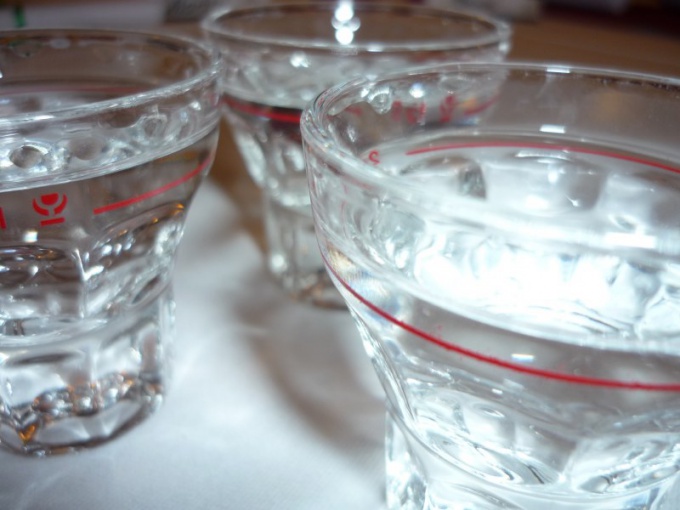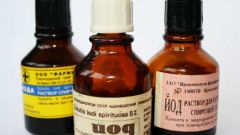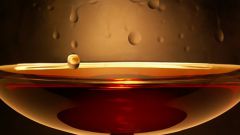Without vodka, one of my favorite Russian population drink alcohol, not do almost any one meal. It is one of the most popular products in the country. It is believed that, because of the vodka contains only water and alcohol, it can be stored for decades and do not lose their original properties. Those who think so are seriously mistaken. All foods have an expiration date, and vodka is one of them. The shelf life of any product depends on three factors: the composition, packaging and compliance with the storage conditions.
The widespread belief that vodka is composed solely of water and ethyl alcohol is wrong. There are two types of vodka: the special and simple. A simple vodka is often really consists only of these two components. Sometimes this alcoholic product of the individual brands add additional sugar. However, one should not forget that ethanol is 100% pure product. One liter of this substance will have a maximum of 0,96-0,98 liters of alcohol. This means that even in the high-quality product alcohol content is between 96% and 98%, the remaining 2-4% are impurities. During long-term storage of these impurities starts to enter into chemical reactions with water, alcohol and air, which fills the bottle, which will contribute to product contamination and deterioration of its properties.
With regard to special vodkas, in addition to chemical reactions with impurities, they face another problem. In the composition additionally introduced flavors (lemon, cranberry, etc.), often of plant origin. Additives enter into a chemical reaction with water and alcohol, causing oxidation of vodka. And this happens pretty quickly. The same applies to herbal tinctures based on vodka, made at home.
The container used to store vodka, also has a special influence on the rate of change of its quality. In any case it is not necessary to store vodka (or any other alcohol-containing alcohol) in plastic containers. The fact that alcohol, as a chemically active substance, begins to interact with the molecules of the plastic, forming a toxic substance dangerous to health. Therefore, storage of vodka using glass bottles (glass does not react with alcohol). In addition, ethyl alcohol has the property of volatility – if the containers will be securely closed, it will start to evaporate and this will affect the reduction of the strength and volume of drink.
To prevent the occurrence of chemical reactions, the vodka should be stored at temperatures from 5° C to 10° C. Humidity should not exceed 85%. And, of course, the bottle must be sealed.
Vodka, like other foods, there is an expiration date. Special (flavored) vodkas or liqueurs – from 6 months to one year. For a simple vodka shelf life is only a conditional (in Soviet times, the quality of the glass was much worse than now, and it is partly entered into a chemical reaction with alcohol). Usually a bottle of vodka a specified shelf life 2 years, but it is a relic of the past. At observance of storage conditions, right of container and its integrity, plain vodka can be stored much longer, but not forever.
Composition
The widespread belief that vodka is composed solely of water and ethyl alcohol is wrong. There are two types of vodka: the special and simple. A simple vodka is often really consists only of these two components. Sometimes this alcoholic product of the individual brands add additional sugar. However, one should not forget that ethanol is 100% pure product. One liter of this substance will have a maximum of 0,96-0,98 liters of alcohol. This means that even in the high-quality product alcohol content is between 96% and 98%, the remaining 2-4% are impurities. During long-term storage of these impurities starts to enter into chemical reactions with water, alcohol and air, which fills the bottle, which will contribute to product contamination and deterioration of its properties.
With regard to special vodkas, in addition to chemical reactions with impurities, they face another problem. In the composition additionally introduced flavors (lemon, cranberry, etc.), often of plant origin. Additives enter into a chemical reaction with water and alcohol, causing oxidation of vodka. And this happens pretty quickly. The same applies to herbal tinctures based on vodka, made at home.
Tara
The container used to store vodka, also has a special influence on the rate of change of its quality. In any case it is not necessary to store vodka (or any other alcohol-containing alcohol) in plastic containers. The fact that alcohol, as a chemically active substance, begins to interact with the molecules of the plastic, forming a toxic substance dangerous to health. Therefore, storage of vodka using glass bottles (glass does not react with alcohol). In addition, ethyl alcohol has the property of volatility – if the containers will be securely closed, it will start to evaporate and this will affect the reduction of the strength and volume of drink.
Storage conditions
To prevent the occurrence of chemical reactions, the vodka should be stored at temperatures from 5° C to 10° C. Humidity should not exceed 85%. And, of course, the bottle must be sealed.
Shelf life
Vodka, like other foods, there is an expiration date. Special (flavored) vodkas or liqueurs – from 6 months to one year. For a simple vodka shelf life is only a conditional (in Soviet times, the quality of the glass was much worse than now, and it is partly entered into a chemical reaction with alcohol). Usually a bottle of vodka a specified shelf life 2 years, but it is a relic of the past. At observance of storage conditions, right of container and its integrity, plain vodka can be stored much longer, but not forever.




